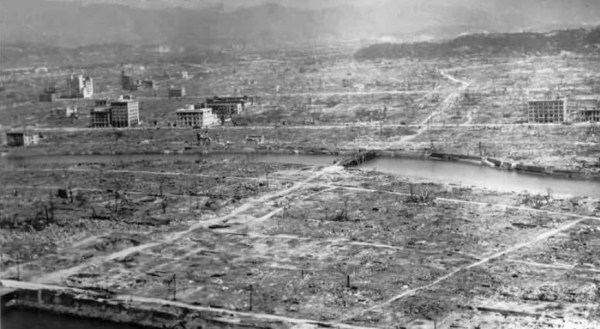Last Friday, October 11th, 2024, an established organization of atomic bomb survivors was awarded the prestigious Nobel Peace Prize.
The Japanese organization Nihon Hidankyo, was founded in 1956 by a group of survivors of the Hiroshima and Nagasaki atomic bombings of 1945. Upon impact, over 120,000 people were killed, discounting those who died later on from burns and severe injuries. Those who survived are now called the “Hibakusha” in Japanese.
After the bombings, the future of the Hibakushas was changed and impacted forever, and yet there was a level of ignorance on a global scale. Thus, Nihon Hidankyo began working towards their goals of promoting social and economic equality to the Hibakusha, while ensuring no one suffers like they did ever again.
Once the prize was awarded, it was stated that Nihon Hidankyo won “for demonstrating through witness testimony that nuclear weapons must never be used again”, shining a light on a few global issues our society is currently facing.
Some see this win as a message or a call to action. This win signifies a stand against violence and an end to avoidable catastrophic events. At this moment, there are two major situations that could lead to a repeat of what we have seen before; the conflict in the Middle East, and the Ukraine and Russia war.
The co-chair of Nihon Hidankyo spoke on this and said that the theory that nuclear bombings could lead to peace is a fallacy. “It won’t end there,” he said. “There will always be consequences and the result will not be peace.”
The symbolism of the peace prize going to survivors of one of only two nuclear bomb catastrophes does not go unnoticed, though, and prompts us to remember and honor the death and suffering nuclear weapons can bring.
Nuclear war has proven (twice) that it decimates everything in its path, taking entire cities and populations with it. Just two bombs left Japan devastated, with a third of its economy destroyed and 2.5 million Japanese people lost (JICA, 2024), not counting damage to major cities or losses before the nuclear bombings.

The scale of the destruction nuclear weapons are capable of should have been enough to put countries off adopting nuclear weapons as centres of defence plans and national militaries. And yet, production has spread exponentially through all regions of the world, with more than 90% belonging to the military superpowers America and Russia.
As of today, if all nuclear bombs were deployed (an estimated 19,000 nuclear warheads globally) at the same time, the world would become uninhabitable (Matthews, 2024). Along with suffering extreme and irreversible climate damage (starting a nuclear winter), radiation contamination would render most of the surface of the earth uninhabitable, the electromagnetic energy released would also shut down all types of electronics globally, all along with the immediate physical casualties and effects of producing a 10km wide 2km deep crater upon impact.
As the 80th anniversary of the bombing approaches, the Nobel Committee reminds us of our duty to honour and remember, with the goal of not as a society repeating the tragedies of the past. It is up to us and our leaders to keep this in the forefront of our minds as we look towards a future of uncertainty and war, so we can hope for a future without mass destruction, and of peace




